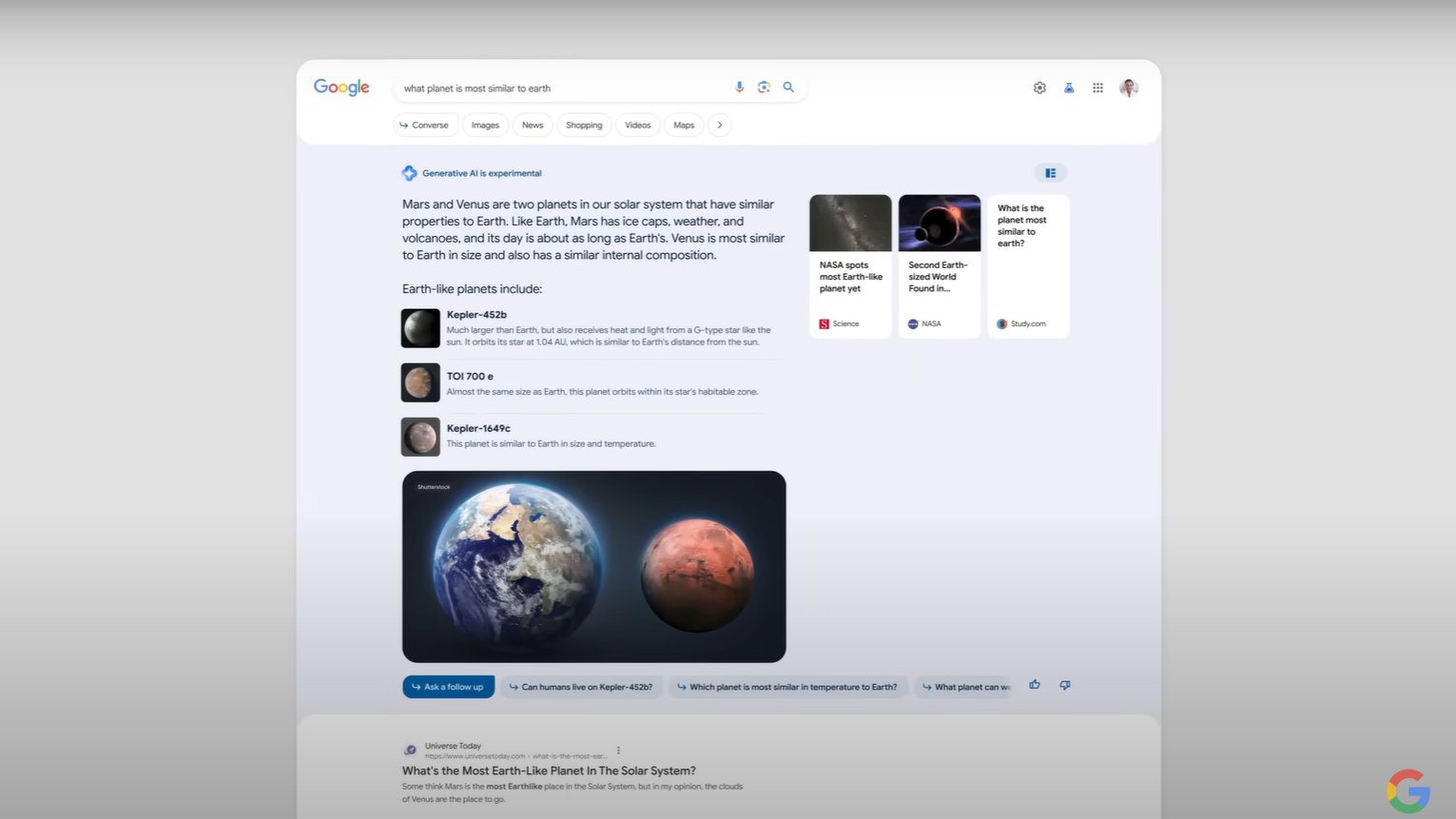Google is reportedly experimenting with its search results and looking to add AI overviews for more users. Previously, the feature was being tested for people who had opted into the Google Search Generative Experience (SGE), which would allow them to try Google’s latest innovations with generative AI. Google claims that this update will give users more information and context to users’ searches.
Users can sign up to try search features that Google is testing and looking to receive feedback on via Search Labs. The Google Search Experience that Google has been working on displays an AI-generated answer which would be followed by the usual search result listings we’re used to. The AI-generated answer would be pre-empted by a very explicit ‘Generative AI is experimental’ disclaimer, and would be indicated visually by being sectioned off with a differently-colored background.
Google will also show citations for where its AI model would source its information to give you your answer. You could then follow those citations and check out the sources for yourself, continue your search with another query or by perusing the other results, or toggle the AI-generated answer with options that Google provided at the bottom of it.

The experiment is going outside the Search Labs
Search Engine Land reports that Google is expanding AI-generated answers to more users, even if they haven’t opted into the Search Labs program. A Google spokesperson told Search Engine Land that this is being trialed on a “subset of queries, on a small percentage of search traffic in the U.S.”
The experimental search experience was announced in a Google Keyword blog post in May 2023, encouraging users to embrace the newer AI-powered features of search. These include searching visually with Google Lens and using multiple modalities, meaning different types of data, namely using text and images, to make search queries. Google claims it’s making progress in the way we can search, and now will be able to answer queries that it claims weren’t possible to answer earlier.
The spokesperson continued that Google wants “feedback from searchers who have not opted into SGE specifically,” to get a sense of users' impressions from a more general population of searchers.

A major twist to a classic - big risk, big reward?
I can see why Google is pushing hard for this. Microsoft is going ahead at full steam to inject its AI tools into multiple apps, including many beloved classic applications. Google is still very much in the AI race with its recent release of the generative AI model, Gemini.
Right now, it still seems like a very limited run of testing, but I expect that Google will expand this to more and more users. Now, I’ve found generative AI answers useful, especially for longer queries with more context, and having the sources there is a huge plus. That said, I’ve used it probably only a handful of times so far in place of when I maybe would have used a search engine. The way that legacy search engines, particularly Google Search, currently display results has become the industry standard, and it's pretty clear and straightforward.
A change like this would be a pretty considerable shakeup to the status quo, and some industry observers are already concerned that Google is being too persistent with its efforts to integrate AI into existing products like Google Search. This could also affect how news and media sites operate in a significant way, as they largely depend on traffic from Google Search results, which would likely end up much further down the page.
Changes to things that have become staples of our day-to-day lives are almost always controversial, but maybe the proof is in the pudding and Google might be right that this will be a preferable way to search. The only way to know is to test it, which it’s doing, but I would be wary of making it a default search results format. Perhaps it would be better for Google to make it an opt-in change, even if prominently displayed, as that would give users the choice of whether they’d like to try the new format. If users aren’t even willing to try it after being offered, that’s also valuable feedback that Google should take on board.
YOU MIGHT ALSO LIKE...
from TechRadar - All the latest technology news https://ift.tt/Q16Ex8X
No comments:
Post a Comment